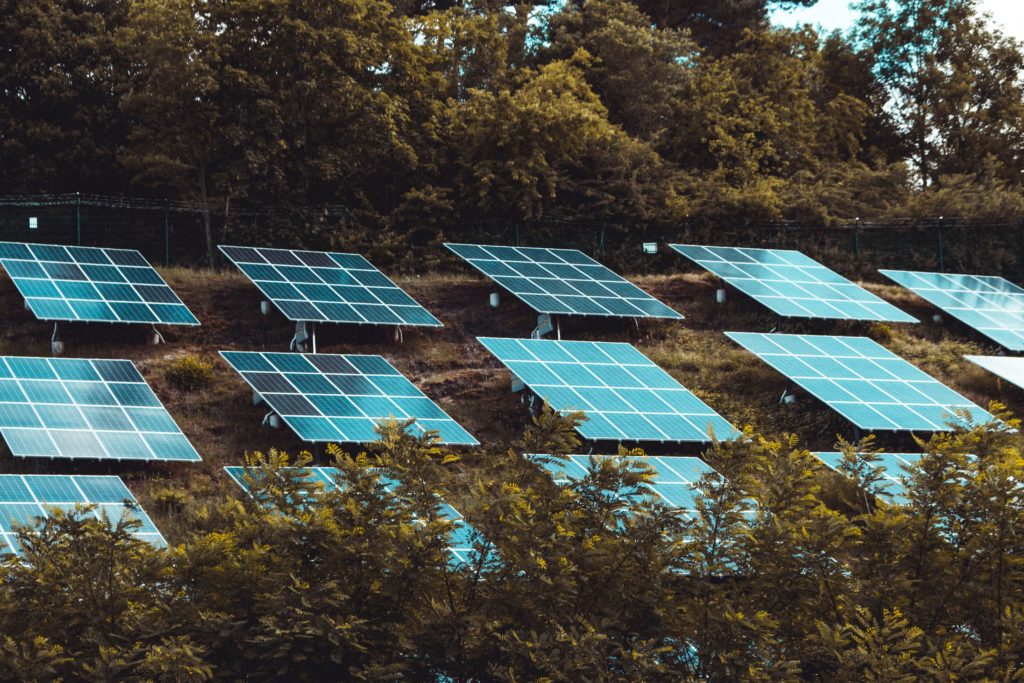 Last year after we moved into our house, the first thing I did (after painting my front door yellow, of course) was to contact all of the local solar energy companies and get quotes for solar panel installation. Going solar was something I knew I wanted to do once I had my own home. When I was living in an apartment I always called my energy company to see if there was an option to sign up for a cleaner energy program, but not seeing any hard evidence of this clean energy or knowing exactly where it came from, made me long for the day I’d have my own home.
Last year after we moved into our house, the first thing I did (after painting my front door yellow, of course) was to contact all of the local solar energy companies and get quotes for solar panel installation. Going solar was something I knew I wanted to do once I had my own home. When I was living in an apartment I always called my energy company to see if there was an option to sign up for a cleaner energy program, but not seeing any hard evidence of this clean energy or knowing exactly where it came from, made me long for the day I’d have my own home.
I got my solar panels installed without a second thought, feeling good about doing my part in cleaning up the energy stream and promoting renewables. So I was just as disappointed and taken aback as I’m sure you are now when I read about solar panels creating tons of toxic waste at this end of its lifecycle. A solar panel’s life span is, on average, anywhere between 25-30 years. At this point, the amount of energy generated significantly declines. Then it’s only a matter of time before it completely stops producing.
In the 1970s, solar panels were first used in commercial buildings. Following the energy crisis in the United States, more and more solar panels have been installed in homes ever since. These solar panels are now starting to die. They’re no longer able to produce energy and are being removed from homes. As solar panels become more affordable for the general public, we will see more “dead” solar panels over the next few decades. According to the International Renewable Energy Agency, we could be facing up to 78 million metric tons of e-waste by 2050 from old solar panels.
Solar panels cannot be recycled the same way as a laptop or old cellphone can. You can’t just drive your six old panels to Best Buy and drop them into an e-waste box, and the recycling methods are not the same. At this time, there are no standardized recycling methods for solar panels. Meng Tao, an Arizona State researcher who recently wrote a paper on recycling solar panels, said, “If we don’t mandate recycling, many of the modules will go to landfill.” Not only is this a problem for obvious reasons of increasingly more waste on our planet, but solar panels also contain high levels of lead. Suppose we don’t come up with a safe and effective method for recycling these panels. In that case, we could be facing lead seeping into our environment and water supply as they sit around in landfills.
Several policies are popping up around the world to prevent toxic waste from solar panels. The EU makes sure that all suppliers have a recycling policy in place if they want to sell. Australia, India, and Japan also all have recycling policies. However, except for Washington state law that also requires manufacturers to have a takeback or recycling program in place, the United States has no other legislation to protect the planet and its people. With the size of the United States, passing federal legislation that mandates a specific recycling method across all fifty states could be too difficult. However, implementing similar legislation to the EU and Japan that requires manufacturers to have an end-of-life plan in place could be enough. With such legislation, we could call our service company once our solar panels are no longer producing, and they would be in charge of making sure it is recycled properly. The legislation would ensure that recycling would actually take place, rather than just a landfill drop-off. Although my solar panels have a few decades ahead of them before I need to start worrying about this, I plan to contact my solar company to ask what they plan to do with old panels. If you haven’t gotten panels installed yet, but plan to, make sure to ask about their disposal policies!
Also by Iga: Germany Bans Single-Use Plastic, On Track To Meet EU Goal Of No Plastic Waste By 2021
3 States Enforce Their Own Water Regulations After EPA Failure
Get more like this—Sign up for our daily inspirational newsletter for exclusive content!
___
Photo: Moritz Kindler on Unsplash




